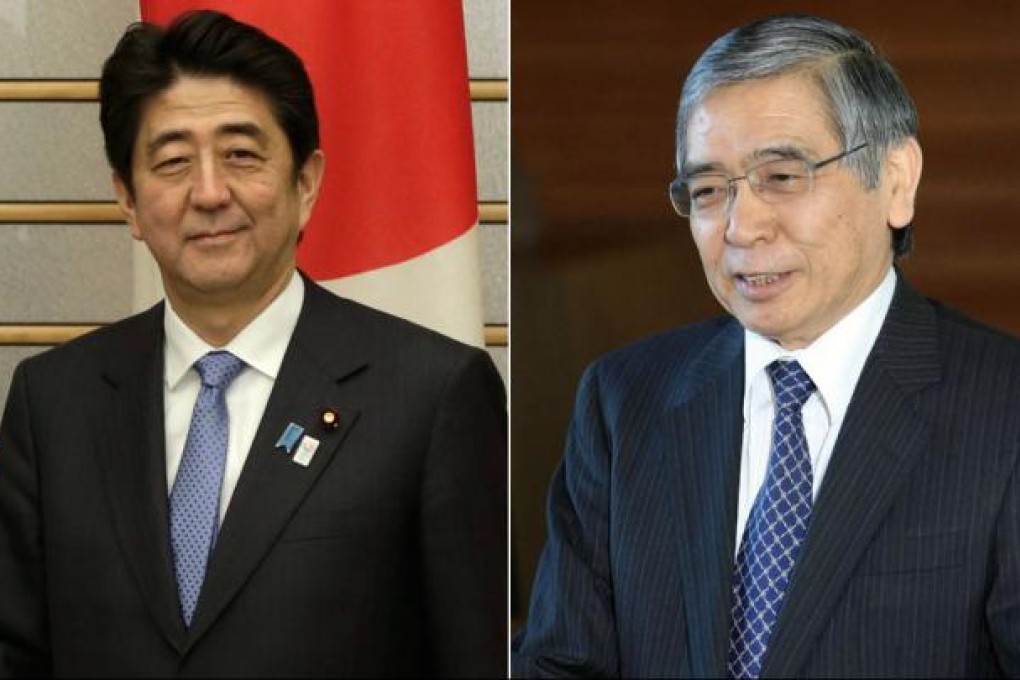Abenomics' samurai spirit
The country's leader and central bank are in lockstep on fixing a broken economy. Stand by for a comeback

Like many a guest arriving late at a drinks function, there's a natural inclination to make up for lost time. And so it is with the Bank of Japan, which joined the global reflation party in early April, with plans to unleash a torrent of liquidity designed to wash away decades of economic underperformance.

In the first three months of 2013, Japan's benchmark Topix index rallied a staggering 20 per cent in local terms. You'd have to go all the way back to the heady days of the late 1980s to see a better quarterly performance.
There are a few twists to the Abe programme. For example, the country's inflation target has been raised from 1 per cent to 2 per cent. The Bank of Japan aims to expand the money supply to - hopefully - turn around decades of deflation and economic stagnation. Kuroda says it will boost the size of its monetary base by up to 70 trillion yen (HK$5.5 trillion) annually.
In other words, a fairly standard reflation strategy. But what differentiates this package from others can be summed up in a single word: intent. With a prime minister and a central bank governor agreeing on policy for the first time in a long time, it appears Japan is serious.
The market expected the Bank of Japan to announce monthly purchases of Japanese government bonds worth 5.2 trillion yen as part of the new package; instead governor Kuroda delivered 7 trillion yen. As a measure of its surprise, the Topix index shot up almost 11 per cent in the four days that followed.
Seasoned Japan-watchers have viewed the dynamism of the government's growth initiatives with a mix of disbelief and concern. Heavyweight investors such as Bill Gross and George Soros have warned that the programme threatens to radically weaken the yen, resulting in an "avalanche" (Soros's words) of money coming out of Japan, seeking higher returns in more stable currencies abroad.